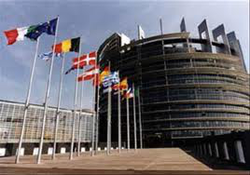Updated: May 29, 2012 (Initial publication: May 20, 2012)
Breaking news

Updated: May 10, 2012 (Initial publication: May 5, 2012)
Breaking news

Updated: Jan. 4, 2012 (Initial publication: Dec. 14, 2011)
Releases : I. Isolated Articles

Translated Summaries
In The Journal of Regulation the summaries’ translation are done by the Editors and not by the authors
ENGLISH
While financial regulation aims at achieving market stability, regulating markets can sometimes take an ironic turn when regulations end up having consequences that differ from their original regulatory purpose. The article provides such an example of regulation’s irony: how a regulatory change in Germany led Moody’s to downgrade 12 banks, therefore weakening such institutions and consequently enhancing the current issues of market volatility and credit cost.
FRENCH
Bien que la réglementation financière vise à assurer la stabilité du marché, la régulation des marchés peut parfois prendre une tournure ironique quand la régulation finit par avoir des conséquences qui diffèrent de son objectif de régulation d’origine. L’article fournit un exemple de l’ironie de la régulation : comment un changement de réglementation en Allemagne a conduit Moody’s à déclasser 12 banques allemandes,, donc à affaiblir ces institutions et par conséquent à accroître les problèmes actuels de la volatilité du marché et le coût du crédit.
ITALIAN
Quando la regolazione è volta ad ottenere la stabilità del mercato, l’evoluzione di questi mercati oggetto di tale regolazione può essere particolarmente ironica quando la regolazione ha delle conseguenze ben differenti da quelle originariamente prepostesi. Questo articolo cerca quindi di mettere in evidenza un esempio di questa ironia: in effetti, un cambio di regolatore in Germania ha portato Moody’s a tagliare il rating di 12 banche, indebolendo ancora di più tali istituzioni ed aumentando si conseguenza le questioni relative alla volatilità del mercato e del costo del credito.
.......................
Other translations forthcoming
Updated: Dec. 22, 2011 (Initial publication: Dec. 16, 2011)
Contributions

